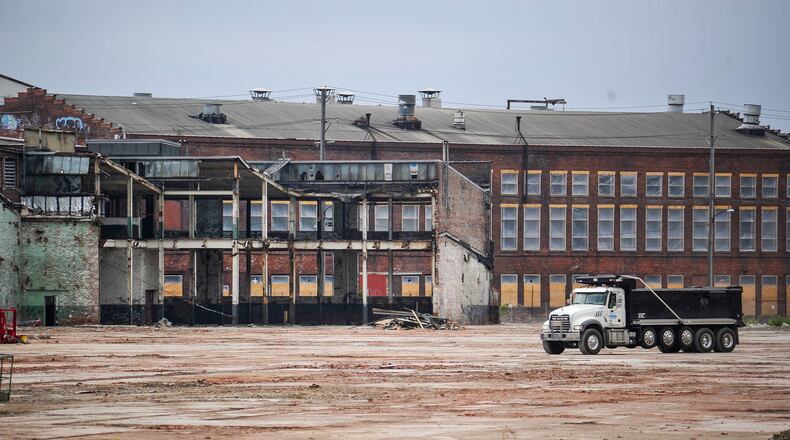Those clean-energy improvements include lighting, heating and air conditioning, windows, roofing, electrical equipment, even elevators, which will be repaid over time through the increased property tax.
In legislation Hamilton City Council approved Wednesday, new terms for an Energy Special Improvement District were created that will allow for the clean energy improvements to be financed at the complex.
The increased tax-assessment payments will be used to repay the borrowed money, said Andy Brossart, a financial adviser to the city with Bradley Payne Advisors.
The site is being cleared on both sides of B Street for the project, and bricked-in windows are being reopened to increase light within the structures and return the one between B Street and the Great Miami River to its look when it originally was built.
The complex is scheduled to open in mid-2021 and projected attract 1.25 million visitors in its first 12 months. The company has said it will create 100 full-time jobs with benefits, with one-third of them having an average pay of more than $56,000 per year.
There also will be another 365 part-time positions ideal for college- and high school students, as well as retirees. Plus, in addition to those employed by Spooky Nook, the company believes another 150 full- and part-time jobs will be created by stores, restaurants and other businesses that will fill the more than 10,000 square feet of space space that will be leased to other companies within the Spooky Nook complex.
To make the PACE financing happen, “you need to have an increased tax on yourself, in order to pay back the debt,” Brossart added. “So they’re electing to say, ‘Raise my taxes on this site only to pay for the financing that will do these energy improvements.’”
The tax payments will go to the Butler County treasurer’s office. The county will forward the money to Hamilton’s city government, which in turn will make required payments on the bonds.
It’s a new mechanism that is gaining popularity across the country. The advantage to the company is that it gives investors more confidence that the bond payments will be made. Essentially, if the company (or another company that later would buy the property) would fail to make the tax payments, there would be liens or other penalties against it.
“It’s a more secure investment tool,” Brossart said. “So they’re able to get lower rates that way” on the interest payments.
About the Author
